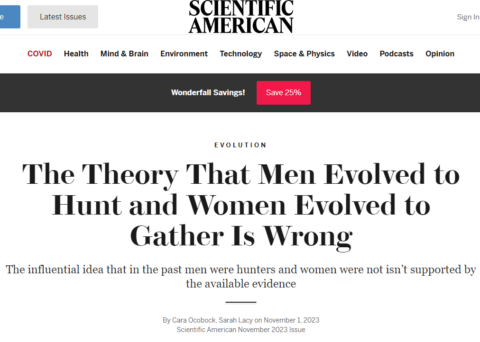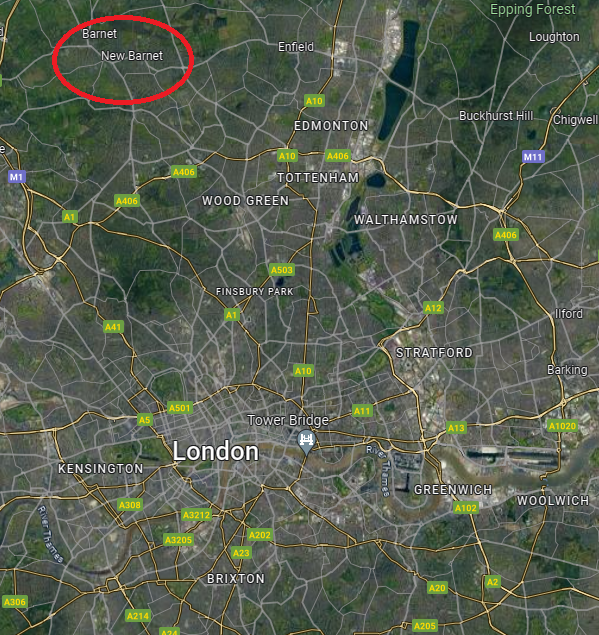World War Two
Published 27 Oct 2023When Marine Corps General Holland “Howling Mad” Smith removed Infantry General Ralph Smith from command in 1944 during the Battle of Saipan, it began a controversy that soon snowballed, threatening to sabotage Army-Marine relations at a time when cooperation was the key to victory.
(more…)
October 28, 2023
Smith versus Smith: US Army/Marine relations in 1944
The transition from burning wood to burning coal
The latest Age of Invention newsletter touches on some of the details Anton Howes uncovered while researching some work on commission for Britain’s NESTA (formerly the National Endowment for Science, Technology and the Arts):

An image of coal pits in the Black Country from Griffiths’ Guide to the iron trade of Great Britain, 1873.
Image digitized by the Robarts Library of the University of Toronto via Wikimedia Commons.
Here are a few key things that I hadn’t really fully appreciated until undertaking this particular commission, though each has provided even more threads I still need to pull on:
ONE. The transition to coal was started by finding ways to exploit the lower-grade, cheaper and more sulphurous coals: initially by finding ways to burn it in people’s homes that would not leave everyone crying and coughing from the stinking fumes; and then with the expanded supply of even the lowest-grade coals making it cost-effective to do things like boil seawater in pans to make salt. The very lowest-grade coal was termed simply “pan coal”. While I’m pretty certain that these innovations were responsible for much of the rise of coal — coal-fuelled salt pans were even the foundation of the Scottish Lowlands economy going into the eighteenth century — the actual inventors involved are still a bit of a mystery. It’s something I need to return to, as “lots of anonymous people just invented through trial and error and adaptation” just doesn’t cut it for me — I’ve never found such stories to be true upon closer investigation.
TWO. Nobody ever talks about lime! Lime was one of the few things burnt with coal since ancient times, but largely to produce mortar for building. The increased availability of cheaper coal in the sixteenth century, however, meant that lime also soon found much wider use as a soil acidity regulator, as well as to control some pests and improve the absorption of fertilisers. It was especially favoured for sandy soils, allowing the conversion of barren heaths to agricultural land by increasing the soil’s water retention.
Yet lime is a huge blind spot for economic historians, despite it increasing the productivity of what was still by far the largest portion of the economy: agriculture. I have a rough and ready test of whether economic historians are paying enough attention to an industry, which is to look up the word in Stephen Broadberry et al.’s British Economic Growth 1270-1870, most scholars’ go-to resource on how historical British output is estimated. Lime is mentioned only once, and only as an input to the construction industry, for mortar. We should know more about lime’s impact.
THREE. Coal, through its various effects on agriculture, also led to an increase in the availability of grain, in turn leading to an abundance of muscle power. Horses were the literal workhorses of industrial cities, grinding the pigments for dyes and paints, tobacco for snuff, charred bones for shoe polish, tannin-rich oak bark for leather, flint for glass and ceramics, and grain for flour, beer, and spirits. Horses fulled cloth, pounded rags into paper, flatted metal into sheets, and bored pipes, guns and even cannon. And of course they powered the transportation infrastructure, hauling the waggons and barges laden with goods.
A theme I keep coming across when I do my research is that there was a lot of effort put into what we might call the “improvement of animals”. I’ve touched on this briefly before, but I get a sense that there’s a whole lot of iceberg lying in wait under the surface for me to uncover. It likely extended to dogs, for example, who like horses were also often used for mechanical tasks. Just yesterday, for example, I read an account by a visitor to 1630s Bristol mentioning how the roasting spits at its inns were driven by dogs in treadwheels. At some point I need to go through all this evidence I’ve inadvertently collected.
FOUR. The Dutch Republic’s Golden Age did not fail because it lacked energy sources. I had already suspected this, as it never rang true, but had not quite appreciated the extent of the evidence: the fairly rapid collapse of so many Dutch industries in the 1650s-80s was, if anything, accompanied by a super-abundance of energy. Both peat and grain were in fact cheaper than ever, largely as a result of plummeting demand. Even the products made using wind —such as the timber sawn for ships along the windy banks of the Zaan river — failed to survive the general collapse in demand.
If energy had been lacking, we would have expected the prices of peat and grain to have been at all-time highs, not in a slump. Indeed, the lack of demand for peat and grain, by sapping demand for infrastructure projects like bog drainage and canal-building, is what led to the re-flooding of much of the Dutch countryside. The causes of the collapse are still something of a mystery to me, but I now feel very confident in ruling the energy theory out.
Prototype Winchester WW1 .50 Cal Antitank Rifle
Forgotten Weapons
Published 5 Jul 2017With the advent of the tank in World War One, antitank rifles became a priority for many countries, to provide infantry with some weapon to counter the new armored threat. The best known example of these (and the only one to see significant production before the end of WWI) was the German Tankgewehr, any captured Tankgewehrs would form the basis for the US development of the .50 BMG cartridge.
This experimental Winchester rifle, made in late 1918, was part of that development. It is the only known surviving example of its type, and suffered a catastrophic failure during testing, as the receiver is cracked completely in half. The mechanism, however, is quite interesting. It uses a 1911-styled pistol grip as the bolt handle (similar to the Czech SS41 antitank rifle that would come decades later). It was fitted with a relatively large detachable box magazine and a mounting point for a telescopic sight.
(more…)
QotD: Deposing King Charles I
It’s 1642, and once again the English are contemplating deposing a king for incompetence. Alas, the Reformation forces the rebels to confront the issue the deposers of Edward II and Richard II could duck: Divine sanction. The Lords Appellant could very strongly imply that Richard II had lost “the mandate of heaven” (to import an exoteric term for clarity), but they didn’t have to say it – indeed, culturally they couldn’t say it. The Parliamentarians had the opposite problem – not only could they say it, they had to, since the linchpin of Charles I’s incompetence was, in their eyes, his cack-handed efforts to “reform” religious practice in his kingdoms.
But on the other hand, if they win the ensuing civil war, that must mean that God’s anointed is … Oliver Cromwell, which is a notion none of them, least of all Oliver Cromwell, was prepared to accept. Moreover, that would make the civil war an explicitly religious war, and as the endemic violence of the last century had so clearly shown, there’s simply no way to win a religious war (recall that the ructions leading up to the English Civil War overlapped with the last, nastiest phase of the Thirty Years’ War, and that everyone had a gripe against Charles for getting involved, or not, in the fight for the One True Faith on the Continent).
The solution the English rebels came up with, you’ll recall, was to execute Charles I for treason. Against the country he was king of.
Severian, “Inertia and Incompetence”, Founding Questions, 2020-12-25.
October 27, 2023
Scientific Wokemerican
In Spiked, James Esses on the formerly respected magazine Scientific American (I’ve been calling it JunkScientific American since they published a story on the “Racist Roots of Fighting Obesity”):
When you come across the longstanding magazine, Scientific American, you could be forgiven for assuming that scientific truth would play a pivotal role in its output.
But not any more, it seems. Scientific American, founded in 1845, is the oldest continuously published magazine in the United States. It has previously featured work by Albert Einstein, among others. However, in recent years, it appears to have been taken over by contributors who consider themselves activists first and scientists second. The magazine’s ethos now includes the express aim of “sharing trustworthy knowledge, enhancing our understanding of the world, and advancing social justice” (my emphasis). It has also started to intervene in electoral politics, too. In 2020, Scientific American broke with a 175-year history of non-partisanship to endorse Joe Biden in the US presidential election.
Worst of all, when its articles touch on questions of gender and biological sex, Scientific American seems to have abandoned objective facts entirely, in favour of trans-activist pseudoscience.
In 2019, an article by Simón(e) D Sun, who identifies as a “transgender nonbinary woman”, tells us to “Stop using phoney science to justify transphobia”. The piece is, as you might expect, filled with ideologically driven language and easily disprovable claims. For instance, it asserts that sex is “assigned” at birth when it is not – it is observed and recorded. It also suggests that “scientific endeavour is quantifiably better when it is more inclusive”. But what if “being inclusive” requires us to deny the reality of biological sex? That would surely put inclusivity at odds with science.
A patronising, finger-wagging tone runs throughout, too. At one point, readers are told to “hold onto your parts, whatever they may be. It’s time for ‘the talk'”.
Ironically, the article undermines its own premise within the first few paragraphs, as it walks readers through the clear biological differences between males and females, ranging from chromosomes to sexual characteristics to brain development. And at the end of the article, having done nothing to challenge the status quo of human biology, we are told: “The science is clear and conclusive: sex is not binary, transgender people are real”.
Of course, nobody has ever claimed “transgender people” are a figment of our imaginations. What gender-critical feminists have argued, however, is that sex is both binary and immutable – and that feeling uneasy about one’s sex is a symptom of mental distress, rather than proof of an innate gender identity that is at odds with one’s body.
And now, for its upcoming November issue, Scientific American has published another piece denying biological reality. Again, this article is peppered with ideological claims that purport to be scientific facts.
The Tale of Fat Man and Little Boy
World War Two
Published 26 Oct 2023Here near the end of 1944, we look at the development of the atomic bomb. What different methods of creating a nuclear reaction are being developed? How close are they to development? How does it work? Will they be able to make one in 1945? Will it go boom?
(more…)
Two wild-eyed optimists claim that things aren’t as bad as you think
Who lets these dangerous lunatics talk to the press? If anyone listens to them, they may get unwarranted optimistic notions that go against the narrative:

Jordan Peterson speaking at an event in Dallas, Texas on 15 June, 2018.
Detail of a photo by Gage Skidmore via Wikimedia Commons.
War is endlessly and eternally horrific. It is understandable and even necessary that the media spotlights today’s conflicts. But this can make us believe that we’re living through unprecedented violence. Russia’s war indeed meant that battle deaths in 2022 reached a high for this century, but they are still very low by historical standards. Last year, 3.5 in 100,000 people died as a consequence of war, below even the 1980s and far below the 20th-century average of 30 per 100,000. The world has in fact become much more peaceful.
This is of course little consolation to those living in conflict zones. But the data speaks to the problem with the constant barrage of contextless catastrophe and doom. Analysis of media content across 130 countries from 1970 to 2010 indicates that the emotional tone has dramatically and consistently become more negative. Negativity sells, but it informs badly.
The same pattern characterizes climate change reporting. A pervasive and false apocalyptic narrative draws together every negative event — ignoring the bigger picture almost entirely. Last summer, for example, forest fires made headlines, but coverage largely failed to mention that the annual burned global area has been declining for decades, reaching the lowest level ever last year. Likewise, deaths from droughts and floods make fill the front pages, but we don’t hear that deaths from such climate-related disasters have declined 50-fold over the past century.
The data show what we all fundamentally know: the world has improved dramatically. Life expectancy has more than doubled since 1900. Two centuries ago, almost everyone was illiterate. Now, almost everyone can read. In 1820, nearly 90 per cent of people lived in extreme poverty. Now it’s less than 10 per cent. Indoor air pollution has declined dramatically, and its outdoor equivalent has also done so in rich countries. If we could choose when to be born, having all the facts at hand, few would choose any time before today.
This incontrovertible progress has been driven by ethical and responsible conduct, trust, well-functioning markets, the rule of law, scientific innovation and political stability. We have to recognize, appreciate and proclaim the value, and comparative rarity, of each of these.
The constant barrage of negative stories may lead us to imagine that our forward progress is about to end. However, the evidence at hand does not support this conclusion. The latest Intergovernmental Panel on Climate Change scenarios indicate that, if not for climate change, the average person would be 4.5-times richer by the end of the century than they are today.
Whisky Folklore – What Is Bourbon? Where Did It Come From?
Townsends
Published 2 Jul 2023Bourbon Whiskey is as American as Hamburgers or the 4th of July. Where did it come from? Where did the tradition start? This episode digs into the history of Bourbon and tries to answer the questions behind this traditional American spirit.
(more…)
October 26, 2023
Look at Life – Draw the Fires (1963)
PauliosVids
Published 21 Nov 2018The railways are changing, with coal-powered steam being phased out and replaced by diesel engines by 1972. Crowds pay their respects to the Flying Scotsman‘s last departure from Kings Cross as it is replaced by a 3,300-horsepower diesel. The network is being modernised by new signalling, longer continuous track on concrete sleepers and flyovers, and controversial closures of lines.
October 25, 2023
Housing for Hamas leadership … in London
In the non-paywalled part of a post from Ed West, we have a look at the terrible conditions leaders for Hamas and other terrorist organizations have to put up with in the embattled suburbs of … London:
Barnet, to those unfamiliar with this corner of the world, is the most Jewish borough in Britain, an area of north-west London often described as “leafy” and including both pleasant inner suburbs like Finchley as well as areas of genuine countryside. The migration of eastern European Jews in the capital followed an anticlockwise direction from impoverished Whitechapel in east London up through Hackney and Haringey in the north, with Barnet the next stop.
It is also, strangely, home to a leading fundraiser for Hamas, the terrorist group responsible for the murder of 1,400 people in southern Israel earlier this month and quite explicitly committed to the eradication of Jews in the Holy Land.
What with London house prices being what they are, you wonder how he managed it, but of course Muhammad Qassem Sawalha, who “ran the group’s terrorist operations in the West Bank”, according to the Sunday Times, managed to buy his property with help from the council.
Despite being a known and wanted terrorist, Sawalha was allowed to settle in Britain in the 1990s and obtain British citizenship. He continued to work for Hamas, holding talks about committing terrorist acts and laundering money for the group, according to the US Department of Justice. In 2009 he signed the Istanbul Declaration which praised God for having “routed the Zionist Jews”, and called for a “Third Jihadist Front” to be “opened in Palestine alongside Iraq and Afghanistan”, according to the paper.
All the while he was benefitting from Britain’s social housing system. In 2003, Barnet Council made him a council tenant and he was housed in a two-storey property with a garden and garage in the borough, where he still lives.
Two years ago, Sawalha and his wife used the Right to Buy scheme to acquire their home for £320,700, with Barnet Council giving them a £112,300 discount on its market value.
This is despite the fact that in 2006 Panorama reported that Sawalha was “said to have masterminded much of Hamas’ political and military strategy” and that, “although he was known to MI5, the ‘authorities let him operate freely here'”. Not just let him operate freely, but sort him out with a house – and if you think this sounds insane, it is not at all uncommon.
Sawalha’s old comrade, the famous hook-handed hate preacher Abu Hamza, was also given a huge house courtesy of the British taxpayer. The Egyptian was allowed to live rent-free in a five-bedroom house in what the Mail described as “upmarket Shepherd’s Bush”, a phrase I would have found astonishing to read as a teenager in west London.
Shepherd’s Bush is next door to super-rich Holland Park, and private property is extremely expensive there – but it also has high levels of social housing, as with much of central London, so “upmarket” might be stretching it.
Progressive support for Hamas, despite (or even because of) the atrocities
In The Line, Jen Gerson outlines the dilemma many on the left find themselves in, as the Hamas atrocities in Israel attract loud cheering from other sections of the left:
The shockingly broad support for Hamas is a full mask-off moment for a big chunk of the modern North American left, and I think most ordinary people are recoiling from what the self-styled progressive movement has revealed itself to be.
I do wish to be fair. I believe a lot of lefties were caught up in the latest Hamas incursion, and expressed support for it before we had a full view of how brutal and, yes, barbaric it was. I also assume that a lot of lefties are well-meaning, and struggle to acknowledge the significant overlap between a noble Palestinian cause in abstract, and the violent resistance movement that seeks to support its ends. I suspect very few have read Hamas’ charter, which is explicitly and openly genocidal. This is not a militancy that is engaging in violence with the ultimate goal of a peaceful, two-state solution. Hamas — the political entity running Gaza, whether we like that fact or not — wants to run the Jews into the sea, and to establish a theocratic Islamic state in its stead.
There is nothing more bizarre than seeing pictures of soft-headed proggies holding signs like “Queers for Palestine,” seemingly oblivious to the fact that a Palestine run by Hamas is one in which the Queers would be pushed from the top floors of whatever is left of Gaza’s multi-story buildings once Israel is done bombing them. One can be deeply sympathetic to the plight of Palestinians as a people while noting that there is nothing liberal, humane or progressive about Hamas’ actual, stated goals, let alone its recent actions.
The fact that this terrorist organization has garnered so much public support from the likes of unions, professors and groups like Black Lives Matter, is darkly ironic.
Let’s look at a few examples; CUPE was, perhaps, the most infamous supporter of Palestinian “resistance” in the hours after it had been revealed that Hamas militants had killed more than 1,000 Jewish civilians, and taken hostage hundreds more. Fred Hahn, Ontario’s CUPE president, reveled in the news last Sunday, noting that he was thankful for “the power of resistance around the globe.” And: “From the river to the sea, Palestine will be free” — presumably (?) unaware that this is a phrase that is commonly associated with the destruction of Israel.
Hahn did apologize. Sorta. “My social media posts became a giant lightning rod for both legitimate anger, and also for bad faith actors with a divisive agenda.” Sure, Fred. Timing and those with a divisive agenda. That’s what got ya.
This week, we had a student group at Toronto Metropolitan University issue a public statement insisting “Israel not a country, but rather the brand of a settler colony” and supporting “all forms of Palestinian resistance and efforts toward liberation”. Credit is due for not mincing words. There is no mealy equivocation between Hamas and the innocent people of Palestine, here.
“All” “resistance” is legitimate.
[…]
I could go on, but I trust you get the point. None if it is compatible with cheering on atrocities — literal violence of the the most base and brutal kind. Justifying rape and baby beheading is irreconcilable with a version of the “left” that presents itself as secular, humane, compassionate, and committed to social justice.
Ordinary people see this, and the dissonance is jarring.
So how do we reconcile it? Well, try this on: Support for Palestinian resistance reveals this lefty jargon for the straightforward power play that it always was.
The activist left doesn’t actually believe that “words are literal violence”, and never did. The weaponization of compassion, the cancelling, the de-platforming — these are tactics. It’s never been about creating a more harmonious and tolerant world, nor protecting innocent students from harmful opinions; it’s about winning. Re-setting the Overton window by bullying dissenters. Dismantling the old power hierarchies — and replacing them with new ones. These politics exist to ensure that anybody who disagreed with the new order and its values was too intimidated to speak up for fear of being labelled a bigot, a racist, a transphobe, whatever, whatever
Violence, harassment, and threats have always been acceptable tactics to this crowd, provided these measures were applied to the right people for the right causes.
There is a reason why this ideology found such fertile soil in universities, and particularly in elite universities. (And it’s no coincidence that the most expensive institutions of education also happen to be clearinghouses for Palestinian support.) At the risk of stating the obvious, universities don’t just exist to educate students, they exist to instruct society’s future scions in the language, manners, and political views that signal acceptance in the ruling class. That’s what elite schools to do. It’s why major corporations and most media institutions have likewise followed suit. It’s power all the way down. .
1847 Walker Revolver: the Texas Behemoth
Forgotten Weapons
Published 18 Nov 2015The Colt 1847 Walker revolver was a massive 4 1/2 pound handgun made for Samuel Walker of the US Mounted Rifles (he also served with the Texas Rangers) as a way to equip mounted troops with greater firepower than single-shot carbines. The Walker was the first true martial handgun made by Colt, and despite its problems (nearly a third of the guns procured by the military would be returned to Colt for repairs, and more than a few literally blew up) it would save Colt from bankruptcy after the commercial failure of his Paterson revolver of 1836.
Only 1100 of these guns were made, 1000 for the military and a further 100 for commercial sale. The military ones were issued to five companied of Mounted Rifles, and can be identified by their factory unit marks for Companies A through E (this particular gun is a Company A one). Roughly half of them were delivered in time to see active use in the Mexican-American War, but all of them would see use for many years later in the hands of the US military, the Texas Rangers, the Confederate military, and in civilian hands. The design would evolve into the Colt Dragoon revolvers and ultimately lead to the 1851 Navy and 1860 Army designs — arguably the most iconic muzzle loading revolvers ever made.







